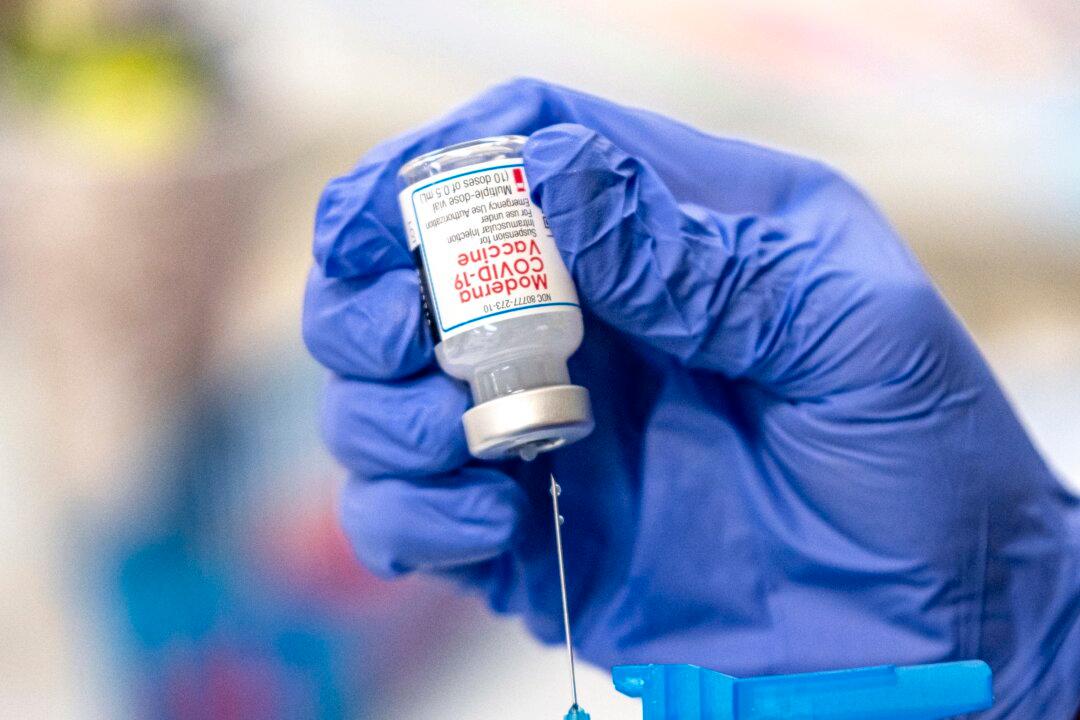Moderna’s COVID-19 vaccine is effective for children as young as 6 months old, Food and Drug Administration (FDA) scientists said in a new analysis published late June 11.
“Available data support the effectiveness of the Moderna COVID-19 Vaccine in preventing symptomatic COVID-19 in pediatric age groups from 6 months through 17 years of age,” the scientists said in the document (pdf).





